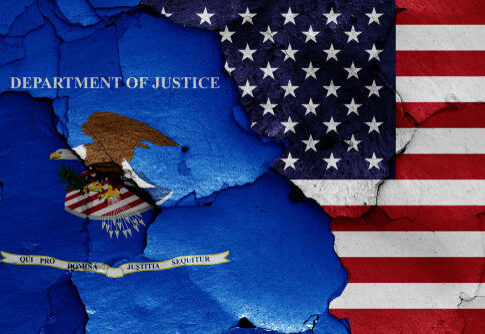A landmark Supreme Court case challenges race-based voting districts, potentially ending decades of racial gerrymandering.
Trump’s DOJ Challenges Race-Based Districts
President Trump’s Department of Justice, led by Assistant Attorney General Harmeet Dhillon and Solicitor General John Sauer, presented a powerful argument before the U.S. Supreme Court, challenging the constitutionality of race-based congressional districts. This case, State of Louisiana v. Phillip Callais, alongside Press Robinson v. Phillip Callais, addresses the creation of a second “majority-minority” district in Louisiana, a move criticized as bowing to leftist judicial pressure.
Today at SCOTUS, the @CivilRights told the Justices that Section 2 of the Voting Rights Act cannot constitutionally require race-predominant districting! pic.twitter.com/6uWrzNs9Eq
— AAGHarmeetDhillon (@AAGDhillon) September 25, 2025
DOJ Advocates for Constitutional Alignment
The DOJ’s brief firmly states that Section 2 of the Voting Rights Act must not be used as a tool for perpetual racial gerrymandering. The argument is that the current interpretation violates the Constitution by allowing racial considerations to override traditional districting principles. The brief critiques the outdated “Gingles framework” from the 1986 Thornburg v. Gingles case, which has been exploited by courts to enforce race-first districting.
The DOJ emphasizes that this interpretation has led to a misapplication of the law, where states are forced to consider race predominantly, even without evidence of discrimination. The brief calls for a significant overhaul to align the VRA with the Constitution, promoting race-neutral principles.
Key Points from the DOJ’s Argument
The DOJ outlines several critical points to support their position. They argue that plaintiffs must demonstrate that a proposed majority-minority district is superior under race-neutral rules, preventing assumptions of racism without evidence. Moreover, they insist on decoupling race from political affiliation, highlighting how courts have allowed partisan divides to masquerade as racial issues.
Finally, the DOJ calls for tangible evidence of discrimination, echoing the sentiments of Shelby County v. Holder, where outdated VRA provisions were challenged. The brief underscores that voter turnout among minorities is high, and representation in Congress is at record levels, questioning the necessity of race-based districting.

